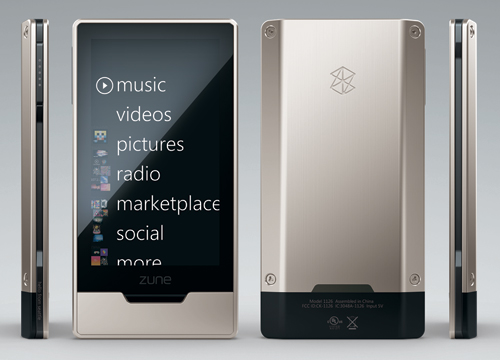Microsoft has confirmed that the next generation of its Zune portable media player - Zune HD - will launch in the U.S. later this year, but what we can't seem to ascertain is which chip will be powering the future of Microsoft's handheld business?
Well, the folks at PCPerspective.com are fuelling recent rumours by stating that NVIDIA staffers have confirmed that Microsoft's Zune HD is in fact powered by NVIDIA's Tegra SoC.
Tegra, shown off earlier this month at COMPUTEX, features eight individual processors on a single chip - consisting of ARM 11 and ARM 7 processor cores, a GeForce-based GPU, a 2D engine, a HD video encoder, a HD audio encoder, and audio and imaging processors, too.
By allowing each processor to be enabled only when required, NVIDIA reckons Tegra can provide days of battery life. Exactly how much? Well, with Tegra implemented in netbook form, NVIDIA currently quotes 25 days (not hours) of music playback from a nine-cell battery.

Still, let's not get ahead of ourselves. The Zune HD would be a major design win for NVIDIA, but we'll remain sceptical until we hear from Microsoft itself. Why the doubt? Well, PCPerspective seems to have known about Tegra's Zune HD integration for weeks - only, it claims not to have realised that the Microsoft-NVIDIA partnership was news worthy.
Seeing as NVIDIA has invested in the region of $500 million in the development of Tegra, we reckon such a design win would be headline news.
Want to know a little more about NVIDIA's Tegra? Click here to see the chip itself, and to read about NVIDIA's plans for a Tegra revolution later this year.













